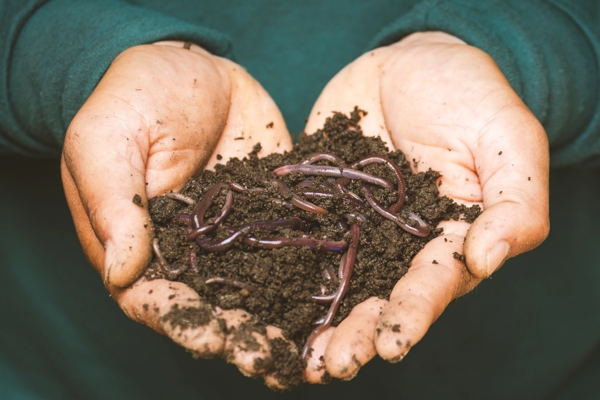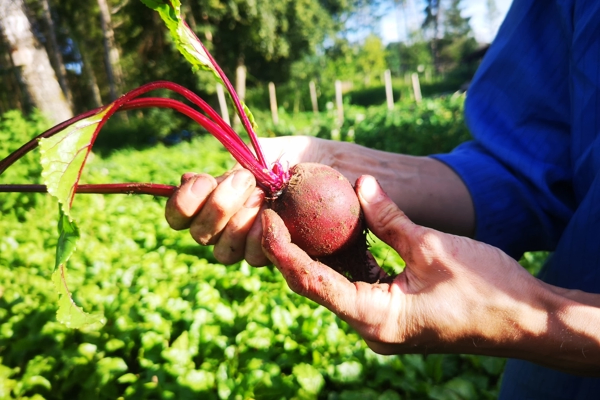Why learn about soil?
Soil is the basis
Soil is the fundamental foundation of life on our planet.
The topsoil, a thin and delicate
layer, holds immense significance for our ecosystems. Surprisingly, about 25% of all organic
life calls the soil their home. This remarkable ecosystem is vital for Planet Earth, making
it imperative to understand and protect this precious resource. The soil ecosystem is vital
for all life on Earth because it supports a complex web of interactions crucial for
ecological balance. Moreover, healthy soil serves as a crucial water filter, ensuring our
access to clean groundwater, further highlighting its significance in preserving not just
land-based ecosystems but also safeguarding our water resources.

Soil is food
Soil provides essential nutrients and a habitat for plants, which form the basis of the food
chain. Microorganisms in the soil facilitate nutrient cycling and decomposition, enriching
the soil and enabling plants to grow.
Healthy soil is the cornerstone of modern agriculture, underlining the critical importance
of nurturing our soil for sustainable food production. As the very foundation from which we
cultivate our crops, healthy soil ensures the abundance and quality of the food we consume.
A fertile soil rich in essential nutrients supports robust plant growth, enhancing crop
yields and nutritional value. Moreover, healthy soil promotes plant resilience against
pests, diseases, and adverse weather conditions, reducing the need for harmful pesticides
and fertilizers. Emphasizing soil health in today's agriculture is not only a matter of
environmental stewardship but also a necessity for ensuring food security and fostering a
healthier future for all. By prioritizing soil care and adopting sustainable farming
practices, we can cultivate a bountiful harvest while preserving the Earth's precious
resources for generations to come.

Soil is the future
In the face of climate change and increasing natural disasters such as erosion, landslides,
and flooding, understanding the pivotal role of soil is paramount.
Soil holds the key to
mitigating these challenges and forging a sustainable future. Erosion-prone soil is a
concerning issue as it disrupts landscapes and affects agricultural productivity. However,
with healthy soil practices, we can counter these threats. Soil acts as a natural sponge,
absorbing excess water during heavy rainfall, reducing the risk of flooding and landslides.
Equally significant, soil is a powerful carbon sink, sequestering carbon from the atmosphere
and mitigating climate change. By promoting soil health, preventing erosion, and utilizing
regenerative farming techniques, we not only ensure food security but also contribute to a
more resilient and sustainable future, underscoring that soil is indeed the foundation of
our tomorrow.
